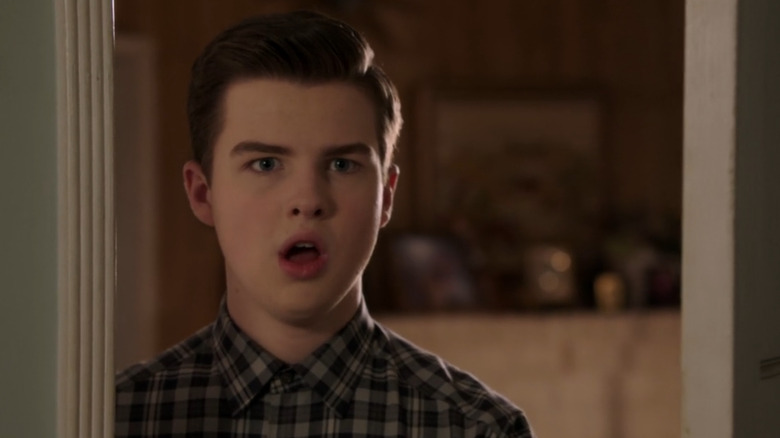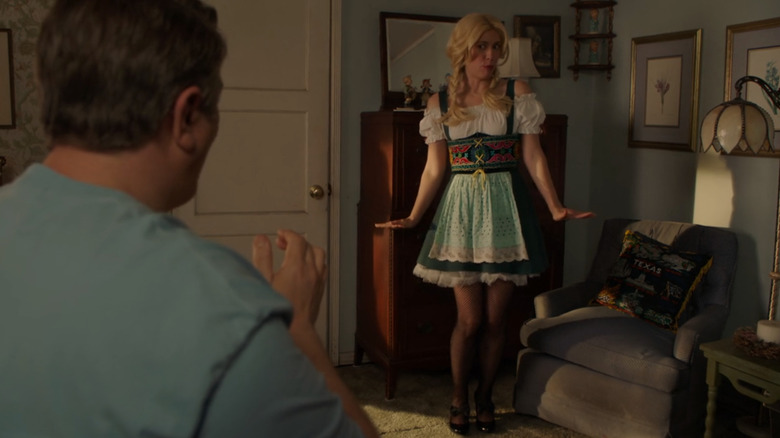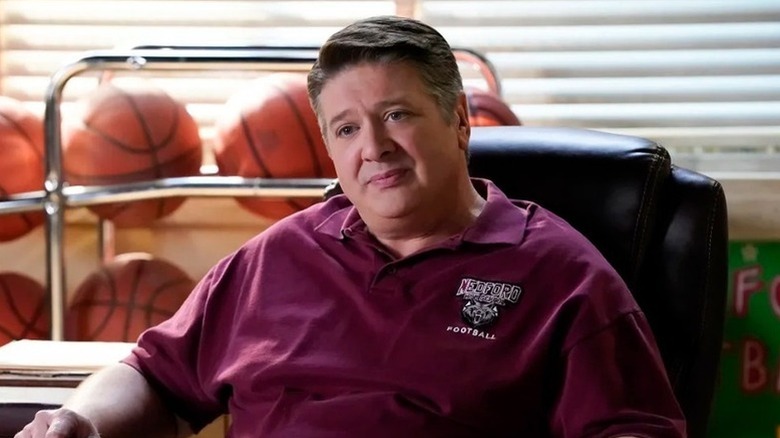There are some pretty big differences between “The Big Bang Theory” and its prequel spin-off series, “Young Sheldon.” For one, “Young Sheldon” is a single-camera series whereas “Big Bang” was multi-cam to allow for a studio audience, which was a pretty massive change-up for the show’s creators. Not only that but “Young Sheldon” is completely different tonally, starting as a pretty standard family comedy before becoming more of a dramedy, giving all new context to “The Big Bang Theory.” Instead of just cracking jokes or making references to the later events of Sheldon’s life, the series actually expanded upon some of the ideas from “The Big Bang Theory” and made Sheldon Cooper a richer, more complex character. And because “The Big Bang Theory” was written without ever planning on making a prequel series, sometimes that meant they had to retcon a few things in order to make it all make a little more sense.
One of the biggest changes was to the character of George Cooper, Sr., Sheldon’s father, played by Lance Barber in “Young Sheldon.” George Sr. had died before the events of “The Big Bang Theory,” and Sheldon (Jim Parsons) always spoke about him negatively, saying that he was an abusive alcoholic and an adulterer. In “Young Sheldon,” George Sr. doesn’t always understand his youngest son Sheldon (Iain Armitage), but he does his best to be a good husband and father. In fact, in season 7 of the prequel series, we discover that George Sr. never cheated on his wife at all, and it was all just one big misunderstanding.
George Sr. didn’t cheat on Mary despite what Sheldon thought he saw
In a season 10 episode of “The Big Bang Theory” called “The Hot Tub Contamination,” the adult Sheldon reveals that the reason he always knocks three times instead of just one is because he saw his father having sex with another woman when he was young and it traumatized him. The first knock is customary, but the two additional knocks give someone a chance to compose themselves and put their pants on. Sheldon’s three knocks are used to make some important points in the show, like when he purposely only knocks on Amy’s door once so she doesn’t suspect it’s him, and it shows how much the incident impacted him.
In the “Young Sheldon” episode “Ants on a Log and a Cheating Winker,” we learn that Sheldon didn’t actually see his father with another woman, but that George Sr. and his wife Mary (Zoe Perry) were having a bit of adult fun with some roleplay, and Mary was dressed up as a German barmaid named Helga. George would die from a heart attack within a year of Sheldon’s “discovery” and he never confronted his father about it, leading to animosity that would never be resolved. The impacts of George’s death would weigh heavily on the entire Cooper family, though it’s worth noting that Sheldon didn’t return home from college for his family’s first Thanksgiving after George’s passing, and the rest of the Cooper crew mourned without him.
The retcon divided the fandom
The decision to retcon George Sr.’s infidelity was met with very mixed reactions from fans, as some felt that it was a disservice to the characterizations from “The Big Bang Theory” while others appreciated it because they had come to love George Sr. over the course of seven seasons on “Young Sheldon” and didn’t want to suddenly hate him right before his death. Honestly, making George Sr. less of a villain and his relationship with his son more complicated than the adult Sheldon painted it on “The Big Bang Theory” was the right move because it not only worked better for the spin-off, but it made an interesting point about the nature of memory. We are all unreliable narrators of our own stories because we rarely have all of the information, and Sheldon spent decades of his life hating his father for something that never happened.
There was love between Sheldon and his father, even if they both had a tough time showing it. While “The Big Bang Theory” was more interested in “Bazingas” and really niche “Star Trek” jokes, “Young Sheldon” took a deep look at how Sheldon Cooper came to be, and at the people that shaped him.










